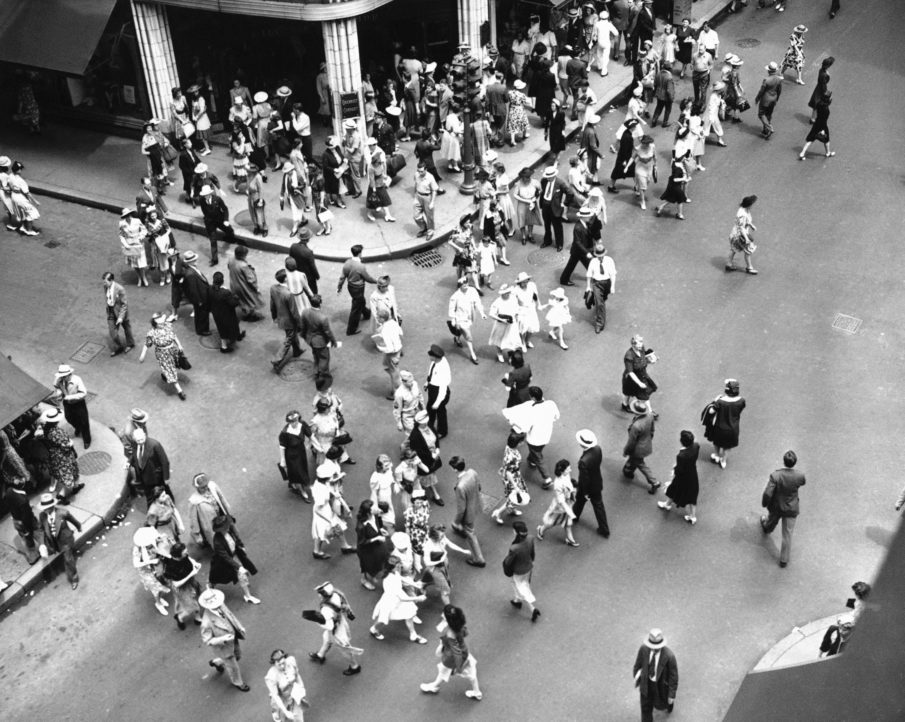“Whenever I sit down at McDonald’s, I scan for exits. I look for reflective surfaces so I can see all angles of all those who come and go. I figure out who might be the greatest threat, and I think of at least two weapons within reach that I could use to defend myself.”
I’ve heard this spiel in one way or another from those who tout the “operator” card loud and proud, wishing everyone within ear’s reach thinks they’re a potent mix of 007 meets Bob Lee Swagger.
They might try and sound a lot like Jason Bourne:
Bourne: Who has a safety deposit box full of money and six passports and a gun? Who has a bank account number in their hip? I come in here, and the first thing I’m doing is I’m catching the sightlines and looking for an exit.
Marie: I see the exit sign, too. I’m not worried. I mean, you were shot. People do all kinds of weird and amazing stuff when they are scared.
Bourne: I can tell you the license plate numbers of all six cars outside. I can tell you that our waitress is left-handed and the guy sitting up at the counter weighs two hundred fifteen pounds and knows how to handle himself. I know the best place to look for a gun is the cab of the gray truck outside, and at this altitude, I can run flat out for a half mile before my hands start shaking. Now why would I know that? How can I know that and not know who I am?
“Forever vigilant,” they say.
There is some truth to this. No doubt training in some of the most intensive SOF units in the world changes your perspective on things, all the way down to your daily routine and conscious behaviors. No doubt multiple deployments to a war zone can vastly change the way you feel about finding exits or locking your doors at night.
This isn’t to be confused with someone who, for example, might whip around at the sound of a loud noise right after a busy deployment. That’s not hyper-vigilance, or any kind of vigilance, that’s just nerves.
The most effective members of Special Operations that I know aren’t constantly in a state of hyper vigilance. They don’t stress themselves out every trip to the grocery store, and they certainly aren’t pulling security in the Toys’R’Us, looking for the nearest weapon in case terrorists come bashing through the windows. They know how to conserve energy, they know how remain functional (and normal) in their environment without drawing attention to themselves, and they know how to relax. Relaxation, like sleep, is an important part of keeping a healthy psyche, which is absolutely necessary even for those who are active duty and headed back into the fray. If you have to be in Fort Knox or blackout drunk to relax, you probably need to seek professional help.
The healthy members of SOF generally retain a subconscious vigilance that can turn conscious as needed. In fact, when someone is constantly trying to make these things conscious (actively looking for reflective surfaces, trying to size everyone up in a crowded room), their more useful subconscious antennae becomes duller. It’s easy to put blinders on yourself when you’re actively trying to devote your mind to multiple things, whereas letting your subconscious mind do more of the work may be more effective (not to mention it’s much healthier).
Already have an account? Sign In
Two ways to continue to read this article.
Subscribe
$1.99
every 4 weeks
- Unlimited access to all articles
- Support independent journalism
- Ad-free reading experience
Subscribe Now
Recurring Monthly. Cancel Anytime.
It’s a scale too — I’m certainly going to be significantly more consciously vigilant on a mission in Afghanistan than I am on a college campus in the U.S. I certainly always retain some level of vigilance in civilian life that I didn’t have before, but it doesn’t invade my every thought. In my experience, those who proclaim this sort of ultra, hyper-vigilance in every facet of daily civilian life are the first ones to be caught unawares on mission in overseas — let alone back stateside when it’s least expected.
Know where the exits are, sit in an advantageous position, and just enjoy your meal and the people you’re with. Switch on when and if you need to.
Featured image courtesy of the Associated Press.










COMMENTS